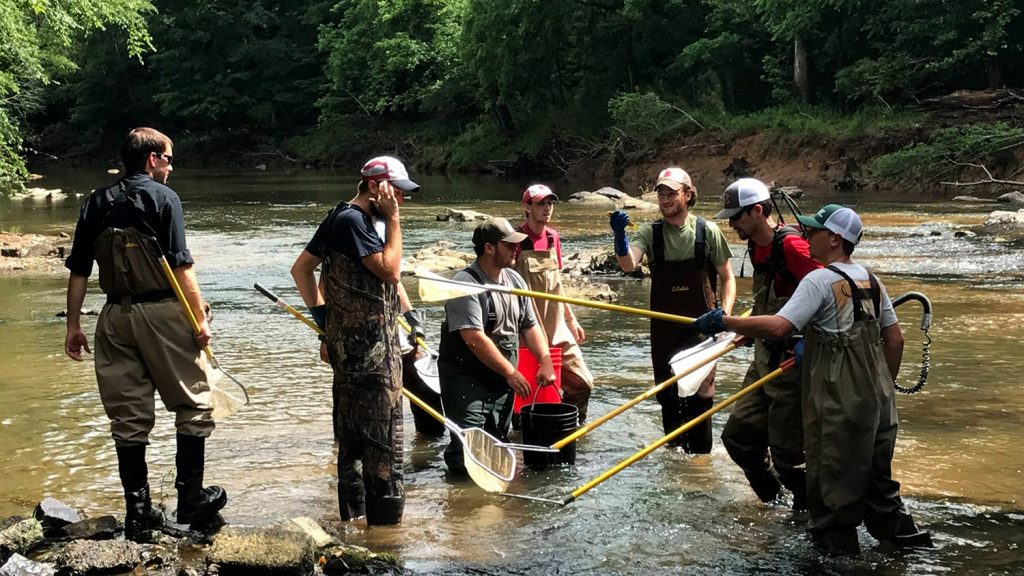Master of Fisheries, Wildlife, and Conservation Biology

Please note that this is an interdisciplinary degree program. Students who pursue specific aspects of fisheries, wildlife, and conservation biology are supervised by FWCB Program faculty from several departments, and reside in the department of their major professor.
Degree Requirements
The Master of Fisheries, Wildlife, and Conservation Biology degree requires a minimum of 30 credits, including four to six hours of special problems and one to two hours of seminars. A professional paper is also required. Further requirements may be imposed by a student’s advisory committee (minimum of 3 committee members).
Students majoring in Fisheries, Wildlife, and Conservation Biology are required to take AEC 502 (2 cr), offered every fall semester. In the case AEC 502 is not offered, other departmental seminars can be taken.
Below are links to past student project papers. The full list can be found here.
The maturation of forested areas on an urban golf course contributes to a shift in songbird community structure over time
Eannarino, Dominic (2021-03-22)
Breeding season survival, home-range size, and habitat selection of female Bachman’s sparrows.
Choi, Daniel et al (2021)
Evaluation of priority game species use and propagation feasibility of high value Sandhills native wildlife plants
Levan, Byron (2019)
Invasive Species Management Survey and Lecture
Bordewieck, Katherine (2019)
Nature based non-consumptive recreation and the American black bear: A review
Fry, Elijah (2018-05-01)
Tourism-related drivers of support for protection of fisheries resources on Andros Island, The Bahamas
Hays, Maureen et al (2015)